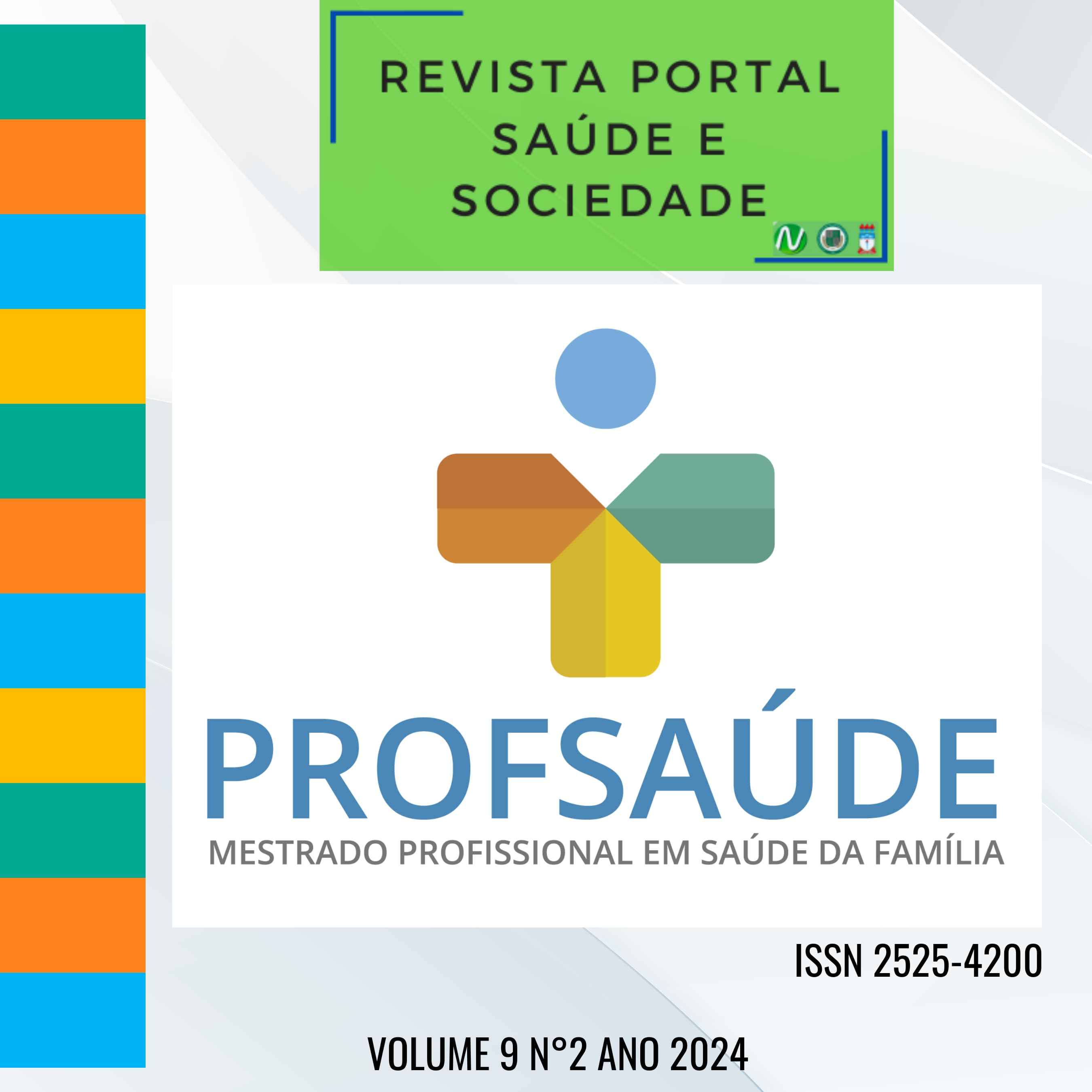Daily life during the COVID-19 pandemic and mental health in Brazilian PHC
DOI:
https://doi.org/10.28998/rpss.e02409013esp-2Abstract
Introduction: The COVID-19 pandemic has changed the daily life of the Brazilian population in many ways, such as social relationships, routines, and cultural aspects. Objectives: To investigate the effects of the COVID-19 pandemic on the mental health of Primary Health Care (PHC) users in Brazil. Material and methods: This article is part of a multicenter study in which 820 interviews were conducted with PHC users in different regions of the country. The interviews were conducted by different researchers, recorded, transcribed, and categorized using the thematic content analysis method, according to the conclusions drawn from the interviews. The categorization was first carried out using MaxQDA Analytics® software and, in a second step, in parallel by an independent group of researchers, with the two formats subsequently discussed and standardized. Results: The results showed that social distancing imposed by the pandemic was one of the changes that most affected participants' daily lives. They reported feelings of "loneliness" and "anxiety", as well as the reduction of cultural habits and reverence for lost loved ones. Furthermore, to describe the state of their mental health, participants also used restricted language with terms such as "emotional" and "psychological". Conclusion: It is clear from the participants' reports not only that daily life has changed significantly as a result of the COVID-19 pandemic, but also that the language used has often failed to capture the complexity of the emotions experienced. Due to the obvious importance of narratives in understanding suffering, a more comprehensive and sensitive approach to the expression of suffering is required. With this in mind, it is crucial to rethink the language used to address human suffering, avoiding simplifications and associated stigma. This will help to develop effective care strategies and more appropriate public policies in the field of mental health. This text is the result of the Professional Master's Degree in Family Health (PROFSAÚDE) stricto sensu postgraduate program.
Keywords: Mental Health; COVID-19; Pandemic; Primary Health Care; Multicentric Study.
Downloads
Downloads
Published
How to Cite
Issue
Section
License

This work is licensed under a Creative Commons Attribution-ShareAlike 4.0 International License.
Esta revista adota a licença CREATIVE COMMONS CC-BY 4.0.
Autores mantém os direitos autorais dos textos publicados e concedem à revista o direito de realizar a primeira publicação do masnucrito. O trabalho é licenciado sob a Creative Commons Attribution License. Isto significa que o compartilhamento do trabalho é permitido, com o devido reconhecimento da autoria do trabalho e publicação inicial nesta revista.
As contribuições dos autors devem seguir as recomendações internacionais - International Committe of Medical Journal Editors: http://www.icmje.org/recommendations/browse/roles-and-responsibilities/defining-the-role-of-authors-and-contributors.html
O autor deve declarar que o artigo é original e que não foi publicado ou submetido em outro periódico, não infringindo qualquer direito autoral ou outro direito de propriedade.
Uma vez submetido ao artigo, a RPSS reserva-se o direito de fazer alterações normativas, ajuste ortográficos e gramaticais, a fim de manter o padrão linguístico, mas respeitando o estilo do autor.
Os artigos publicados tornam-se propriedade do RPSS. Mesmo assim, todas as opiniões expressas são de responsabilidade dos autores.
Esta é uma revista de acesso aberto, é permitido o uso gratuito de artigos em aplicações educacionais e científicas, desde que a fonte seja citada sob a licença Creative Commons CC-BY.





 Siga-nos no instagram
Siga-nos no instagram Ouça nossos podcasts
Ouça nossos podcasts









